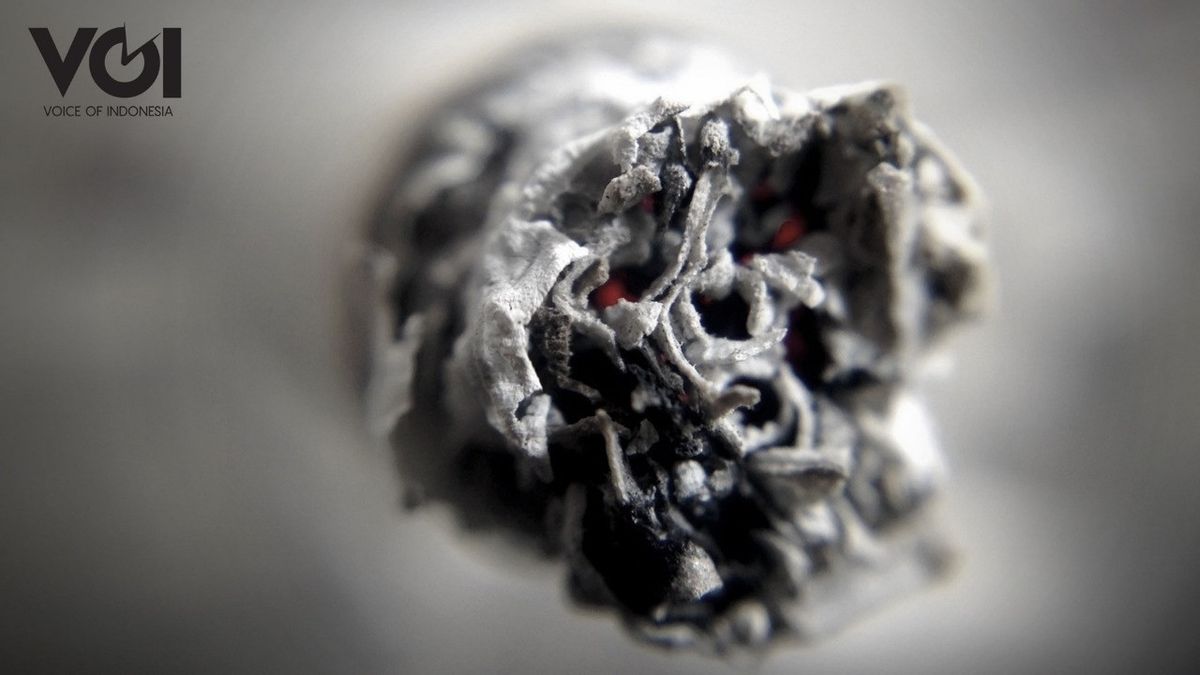We have got an idea of who can benefit from the illegalization of marijuana through the article "Those Who Benefit From Illegal Marijuana". Continued from VOI's signature Series, "Don't Panic It's Organic". This time we will discuss marijuana from a religious perspective, including how the five finger plant is used for religious rituals.
"Glory be to the father and to the maker of creation. As it was in the beginning is now and ever shall be world without end. "
For adherents of rastafarians, a belief (religion) that develops in Jamaican society, the above prayer chants are always read right before they indulge in smoking marijuana. According to them, the ritual of smoking marijuana is not just a tradition, but a part of worship which is even written in the holy book of the world's rastafarians called Holy Piby.
The Rasta, or Rastafari Movement, is a new religious movement that recognizes Haile Selassie I, the former emperor of Ethiopia, as King King, Lord of Lords and Lion of Judah as Yah, and part of the Holy Trinity. Not only in Jamaica. Other beliefs are the same. Mainland Asia, for example. The influence of marijuana as a complement to religious rituals has been around for thousands of years.

Quoted from the research results of the Indonesian Cannabis Circle (LGN) as outlined in a book entitled Hikayat Pohon Ganja (2011), it is explained that marijuana has become part of all Indian and Japanese society. Prihal India, a country inhabited by a majority of the Hindu community, has long used the cannabis plant as a complement to worship.
This can be seen from their daily worship in the afternoon which is often accompanied by smoking marijuana. Because of the frequency, it is not uncommon for his followers to throw marijuana stalks into the fire so that the smoke produced then drives away the enemy as well as evil forces. The proof can be seen in the Vedas.
The book does not escape mentioning that marijuana is a source of happiness, a giver of pleasure, and a liberator. This is also reinforced by the ancient Rajawalabha text which reveals that "Gods sent the cannabis plant out of love for mankind in order to achieve pleasure, disappear fear, and have sexual desire," written in the Tale of the Cannabis Tree.
Almost similar to India. Spiritually, marijuana is also cultured in Japan through the extension of the sect that is widely practiced in the Land of the Rising Sun, Shinto. For Shintoists, everything in nature, be it stones, plants, or animals, all have a spirit of evil and good. Black and white.
Incidentally, the plant nicknamed the tree of life is classified as a good plant. So, it is natural that marijuana is an important aspect that describes the purity and fertility of Japanese society. Therefore, all forms of rituals involving marijuana are usually housed in the shrine which houses the Sun God or commonly known as Amaterasu Omikami.
The special prayers offered to the Sun God are referred to as taima, which means marijuana. It is even more interesting, because the cannabis plant, along with salt and rice, is used during the prayer ritual. "And at shrine rituals, Shinto priests use short sticks connected to the stems of a cannabis plant called gobei to ward off evil creatures," it wrote.
In Indonesia
In Indonesia, a religious perspective is one of the factors that most influences efforts to use marijuana. The leaves of five fingers are considered haram because they are intoxicating, like khmer (liquor). This view is certainly worthy of respect. However, there is another point of view that can be seen in this matter. In Aceh, for example.
In areas where there is a strong adoption of sharia systems, marijuana has been used from generation to generation. Historically, Acehnese people in the 16th and 17th centuries were guided by the Tajul Muluk book or the Mujarobat book, which contained substances about the medical use of marijuana. Acehnese cultural observer, Tungang Iskandar, who was born and raised in Aceh, confirmed this. According to him, the use of marijuana has even started from generation to generation passed down by the ancestors of the Acehnese.
"I think it (the use of marijuana) is no longer a secret. Whereas in practice, the Acehnese have been using it for a long time. In cooking, for example, marijuana seeds are often used in broth, including in broths that are cooked for special rituals in which each big man is the cook, ”he said when contacted by VOI on 17 February.
"Marijuana is haram because of its abuse. It means that if we correct it, the story will be different. Islam is everything for good. So, let's examine and take a stand for all the gray issues, namely by supporting everything that has many benefits and rejecting things that have many bad things, ”he added.

Furthermore, quoted from the Halal Journal MUI 112, the law of marijuana can be seen from how to use it. There are no provisions or restrictions on the use of cannabis leaves (Cannabis sativa syn., Cannabis indica). However, there are notes that the consumption of marijuana should not be excessive. In principle, everything returns to the principle in Islam, that anything that is excessive and harmful is not good.
“… Eat and drink (you), but don't overdo it. Indeed, Allah does not like people who are extravagant. " (QS. 7:31).
Furthermore, as said Tungang, that when it is abused, the law of using marijuana becomes prohibited. An example is when marijuana is rolled into a roll, then burned and smoked like a cigarette. It is also a form of abuse because it has intoxicating and harmful effects.
In Islamic law the rules are very clear; "Laa dhoror walaa dhiror" (it must not cause or cause harm to oneself and it cannot also harm others). In addition, this journal also contains another rule: Adh-dhororu yuzal (the danger must be eliminated).
It can also be concluded that different uses will have different impacts. Thus, the legal provisions are different. This is directly proportional to the statement of the researcher from el-Bukhari Institute of Khoirul Huda. Marijuana itself is never mentioned in detail in the Koran or the sunna. However, marijuana is included in the law called ijtihadiyah, which is something that is considered similar to what is stated in the Koran and the Sunnah.
In the context of cannabis, Islamic jurists try to make an analogy that marijuana is most identical to khmer, which is intoxicating. "According to what I read, there are many contemporary Islamic law experts who forbid it. I have not even found (marijuana) that has judged it as halal," said Khoirul Huda, when contacted by VOI, Friday, February 21.
However, there is a condition where something that is declared haram can become permissible. But of course it is allowed under certain conditions or so-called emergency conditions, even though it is still in sufficient levels. "There is a rule of law that says; something that was previously prohibited is forbidden, so it is permissible. But this ability is limited as long as there is an emergency or there is a very urgent need," added Khoirul Huda.
From all views, there is one thing that is very clear, that there is no prohibition against researching the benefits of marijuana. This means that there should be no reason for the government to at least open up opportunities to research marijuana. "In the context of research, the object of the law is the research, if this is clearly different. If the research is correct, doing scientific research is permissible," said Khoirul Huda.
Follow the Writing of this edition of Series: Don't Panic It's Organic
The English, Chinese, Japanese, Arabic, and French versions are automatically generated by the AI. So there may still be inaccuracies in translating, please always see Indonesian as our main language. (system supported by DigitalSiber.id)













